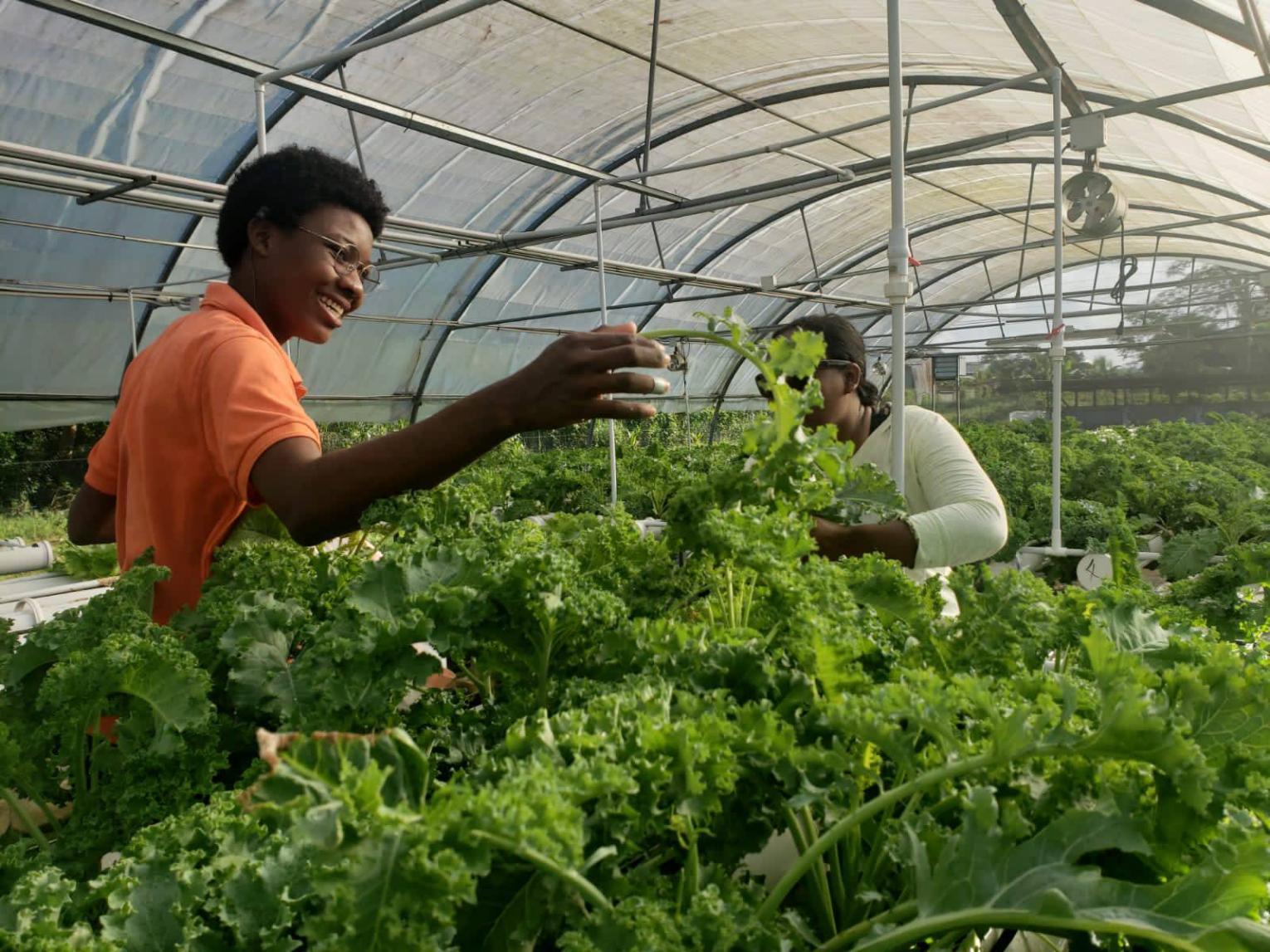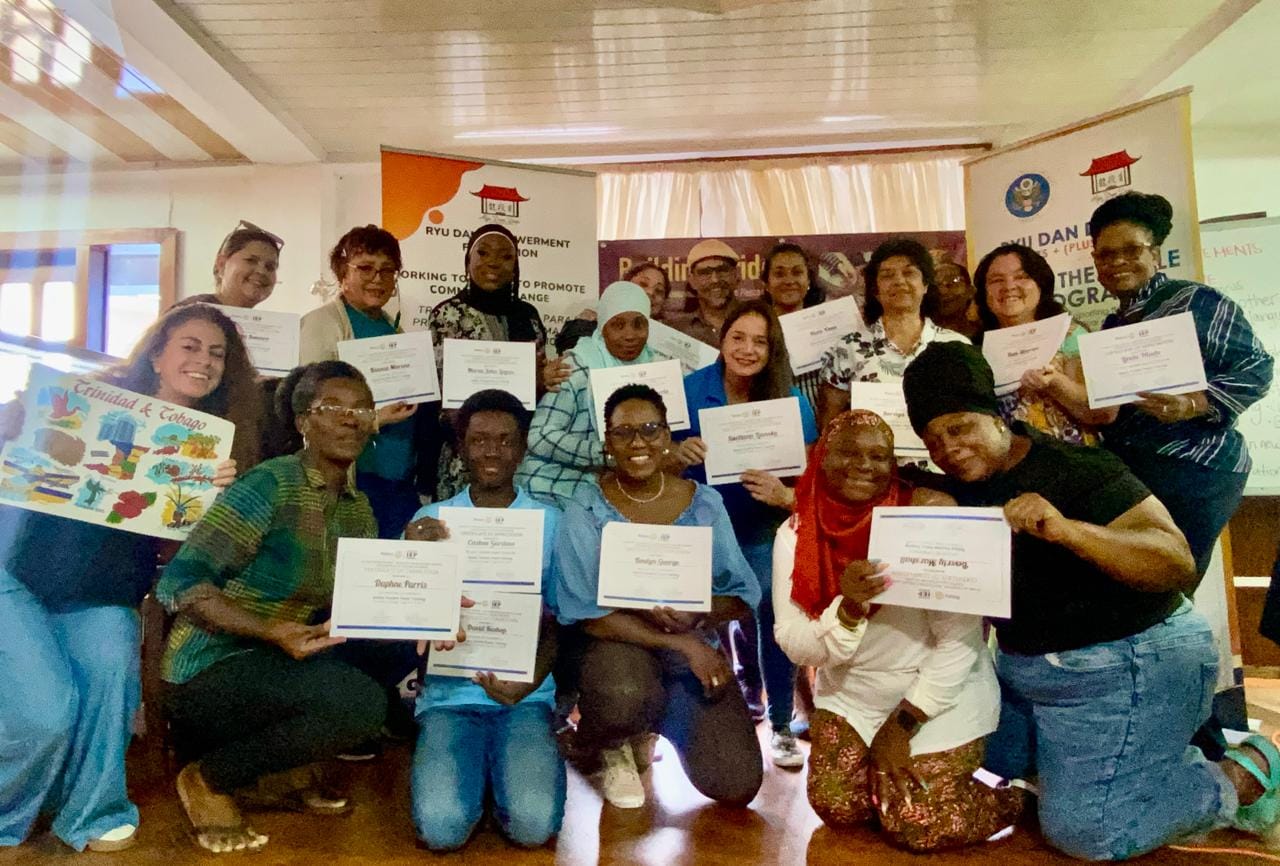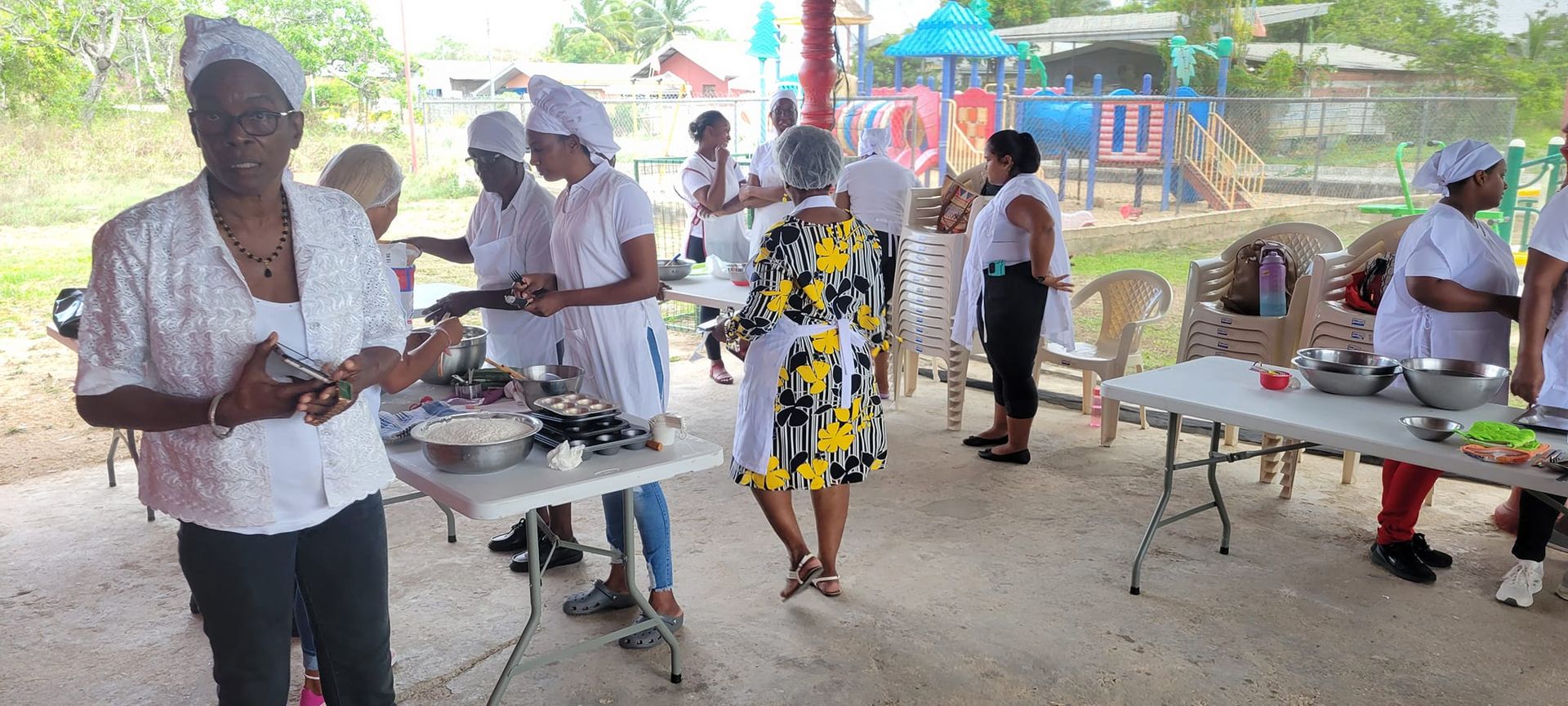Cashew Gardens Community Council
Accelerating Action in Community Development
By Roslyn Williams George

LINKAGE Q1 (2025) - ACCELERATE ACTION
I
f there is one community group in Trinidad and Tobago that truly embodies what it means to survive and the concept of "Accelerating Action," it is the Cashew Gardens Community Council (CGCC).
Established in 2001, the CGCC was initially formed to advocate for improved living conditions in the community. Cashew Gardens in Carlsen Field, a government housing development only partially finished, faced significant challenges: unfinished houses, gravel roads, earthen drains, and a population primarily composed of minimum wage workers. A visibly neglected community whose environment affected the morale of its residents.
After years of lobbying for improved infrastructure, only to have its pleas fall on deaf ears, the CGCC took matters into its own hands. Recognising that economic empowerment was key to uplifting the community, it shifted its focus to training and skills development to create sustainable economic opportunities for residents. Cashew Gardens residents saw potential and set out to transform their place into a model community.

Sustainability was placed at the heart of the community’s development efforts. Social, economic and environmental resources must be used responsibly, not just for today, but for generations to come. By designing sustainable projects, the Council created long-term job opportunities, fostered green businesses, and developed social enterprises that reduced dependence on external aid.
Its initiatives focus on reducing pollution and waste through recycling/upcycling and composting, eco-friendly farming, water conservation, and renewable energy. Community bonds were strengthened by involving residents in decision-making, enhancing the quality of their lives. Most importantly, the Council empowered marginalised groups, especially women and youth, by offering skills-building and employment opportunities. By investing in sustainability, Cashew Gardens envisioned a future where the residence could thrive on their own terms.
Pioneering Community-Driven Entrepreneurship
CGCC’s first major initiative was training residents in grow-box cultivation, which led to the establishment of a community garden. This project created employment for eleven women, significantly improving their financial situations and providing a model for future community-driven entrepreneurship. Encouraged by this success, the Council continued to explore ways to leverage its available resources for social entrepreneurship.
The profits from the garden, along with volunteer labour from skilled community members, enabled the community to construct a Learning Centre, which became a hub for both academic support for children and skills training for adults. In collaboration with the Ministry of Sport and Community Development, Cashew Gardens have since facilitated a wide range of training programmes.

Beyond skills training, the CGCC has launched additional initiatives aimed at fostering economic self-sufficiency and environmental sustainability. Recycling and composting programmes have educated residents on sustainable waste management while creating potential income streams. The Council’s work in recycling, composting and up-cycling plastics showcases how community advocacy can turn environmental challenges into economic opportunities. By educating residents, securing partnerships and lobbying for better waste management systems, the CGCC is creating a model for sustainability that can be replicated in other communities.
Its latest project, the Cashew Gardens Community Green Market, is a local initiative that provides residents with a space to sell fresh produce, handmade goods, and other locally made products, providing an accessible and sustainable marketplace for both local vendors and customers.
International Recognition
Cashew Garden’s community model has gained national and international recognition. In the 2023 budget speech, the Minister of Finance allocated $7.5 million to duplicate the Cashew Gardens model in nine other communities throughout Trinidad. Furthermore, the CGCC was recognised by the United Nations, where it was adopted into the Economic and Social Council and granted ECOSOC accreditation.
The Cashew Gardens initiatives align with several United SDGs, particularly those aimed at poverty reduction, education, economic growth, and environmental sustainability.
SDG 1: No Poverty & SDG 8: Decent Work and Economic Growth
• CGCC provides income-generating opportunities through its Employable Skills Training Programme, the community market, and recycling initiatives.
• The community garden and green market offer economic opportunities to residents while promoting food security.
• The plastic up-cycling project creates employment for youths by introducing sustainable business models in the circular economy.
• The organisation also fosters entrepreneurship by equipping participants with business and financial management skills.
SDG 4: Quality Education
• The Learning Centre provides both academic and vocational training, ensuring that individuals acquire the necessary knowledge and skills for sustainable employment.
• The Employable Skills Training Programme teaches practical trades giving participants hands-on experience and career development opportunities.

SDG 5: Gender Equality
• CGCC ensures equal access to training and entrepreneurial opportunities for both men and women.
• Through financial literacy and business training, CGCC empowers women to establish their own income-generating activities.
SDG 6: Clean Water and Sanitation & SDG 13: Climate Action
• The Cashew Gardens Community Recycling Programme actively educates residents on waste management and environmental conservation.
• The programme includes composting initiatives, reducing landfill waste and promoting sustainable agriculture through organic fertiliser production.
• CGCC’s waste reduction strategies contribute to broader climate action efforts by reducing pollution and greenhouse gas emissions.
SDG 11: Sustainable Cities and Communities & SDG 12: Responsible Consumption and Production
• The plastic up-cycling initiative promotes the circular economy by transforming waste into valuable products.
• CGCC’s waste management strategies reduce environmental degradation while fostering economic opportunities.
SDG 17: Partnerships for the Goals
• CGCC collaborates with key stakeholders, including: The Regional Corporation, The Digicel Foundation, Shell, SWMCOL, First Citizens Bank and The Green Fund, to advance its sustainability and social entrepreneurship objectives.
• These partnerships enable the organisation to scale its initiatives, secure funding, and access technical expertise for programme expansion.
Through all or its various efforts, Cashew Garden residents have learned an invaluable lesson: one cannot wait for others to shape a community into what one envisions. People must take charge of their future and "Accelerate their own Action." In their efforst, the CGCC has two allies who have believed in its vision from the start and continue to offer their unwavering support: Jennifer Massiah, National Director, Habitat for Humanity TT and Dr. Sharda Mahabir, National Coordinator, GEF SGP T&T UNDP.

Their contributions have played a significant role in the community’s journey of transformation.
Many years after the first soil was turned in 2012, Cashew Gardens is still striving to have its infrastructure properly developed, to have a primary school to accommodate its children and to have a regular water supply. However, residents remain steadfast in their commitment to empowering and strengthening their human resource through social entrepreneurship initiatives.
ABOUT THE AUTHOR

Roslyn Williams George
is the Director of the Cashew Gardens Community Council